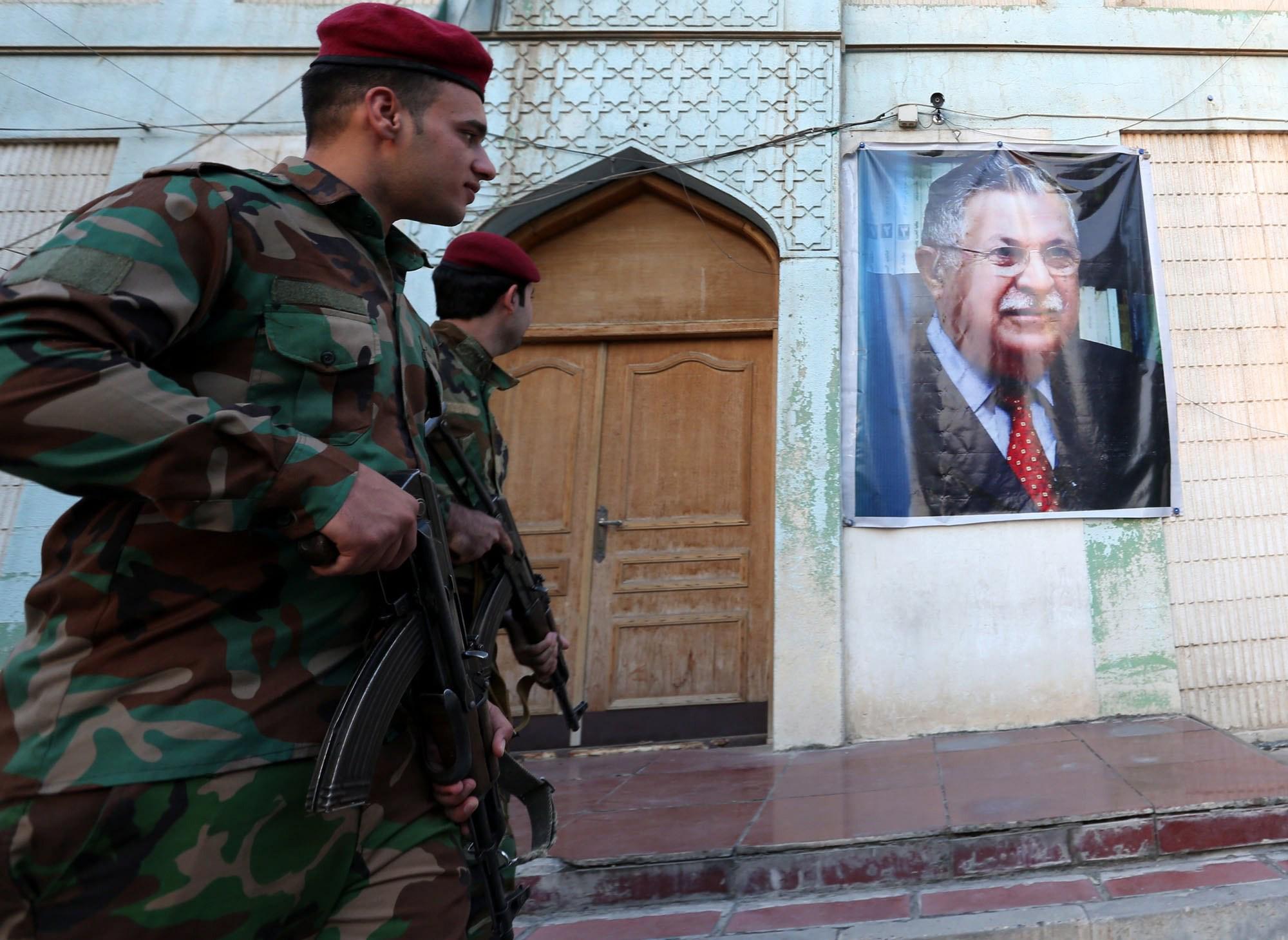Jalal Talabani wasn’t just a guerrilla fighter, he was a great leader to the Kurds
It’s now up to the Kurds to continue the legacy of the former President of Iraq and build a democratic and peaceful Kurdistan for all

On Tuesday, Jalal Talabani, the former president of Iraq and one of the Kurds' greatest leaders, passed away in Berlin. He was at the forefront of the Kurds' struggle for independence and freedom from oppression for over 50 years, founding the Patriotic Union of Kurdistan (PUK) in 1975 and becoming the first non-Arab president of Iraq in 2005.
My late great uncle fought Saddam Hussein's oppressive regime alongside Talabani in the 1980s and became a prominent member of the PUK. He was killed in action in 1985 but would have been proud to see all that Talabani achieved for the Kurds.
Talabani, affectionately known among Kurds as Mam Jalal (Kurdish for Uncle Jalal), once famously quipped that ‘’all [he] wanted was to be a university teacher’’. Instead, he became the face of the Kurdish struggle and dedicated his life to finding freedom for the Kurds. He opposed multiple oppressive regimes and was exiled from Iraq many times, never wavering in the face of overwhelming tyrannical force.
His success is largely attributed to his generous personality and his talent for outwitting rivals. He first joined the Kurdish independence movement in the 1940s as a teenager. A fervent Marxist at the time, he would moderate his views later in life.
Following Saddam's ousting in 2003, many feared a power vacuum could arise and lead to sectarian violence amongst the different factions in Iraq. When Talabani became president in 2005, his resolve and leadership brought people together. Where deep historical wounds would have made it nearly impossible for the Kurds, Sunni and Shia to work together, Talabani managed to build bridges between the three groups and strengthened a sense of national unity. Under his leadership, suicide bombings dropped substantially; Iraq seemed to be on the right path for the first time in decades.
While he devoted his life to the Kurdish people, he fought for all ethnic minorities in Iraq, including Yezidis, Assyrians, Turkmen and many more. He would often describe Iraq as a bouquet of diverse flowers, each having its place. During his time as the president of Iraq, Talabani protected minorities by opposing Islamist movements in Iraq in order to protect Iraqi Christians and women’s rights: "we have a tradition of more equality between men and women than they accept".
Talabani wasn’t just a revolutionary guerrilla fighter; he was also a great leader. During Saddam’s al-Anfal campaign, an estimated 100,000 Kurds died and a refugee crisis ensued. Saddam offered the Kurds amnesty, but said there would be no forgiveness for Talabani.
Yet it was Talabani who refused to back Saddam’s death penalty in 2006. He opposed the death penalty for Tariq Aziz, prime minister of Iraq under Saddam’s regime. Talabani pointed out that he could not support capital punishment as a socialist and neither could he kill an old and sick man. The late Christopher Hitchens would later say of this episode: ‘’Talabani's intervention in the Aziz case is a microcosm of what some of us hoped Iraq would one day become: a state of law instead of a state of blood.’’
After Kurdish forces took control of Iraqi Kurdistan in 1992 and held elections, he gave his most famous speech. In it he painted a path to freedom and sovereignty for the Kurds. His words reverberated throughout Kurdistan and were a great rallying cry.
His death doesn't come as a surprise as his health has continued to deteriorate over the years. Nevertheless, his death is tough to swallow and Kurds everywhere will mourn it. We will forever remember that he dedicated his life to the service of others. And yet, his death comes at a complex time in Kurdish history, facing complications after the recent referendum on independence, upcoming elections and unilateral opposition to the referendum from Turkey, Iran and Iraq.
Talabani’s passing is a huge loss for Kurdistan and Iraq but he will forever be part of our history. He remained true to his principles and beliefs to the very end. It’s now up to the Kurds to continue his legacy and build a democratic and peaceful Kurdistan for all. And while he didn’t become a university teacher, he did teach all Kurds how to be free.
Join our commenting forum
Join thought-provoking conversations, follow other Independent readers and see their replies
Comments
Bookmark popover
Removed from bookmarks